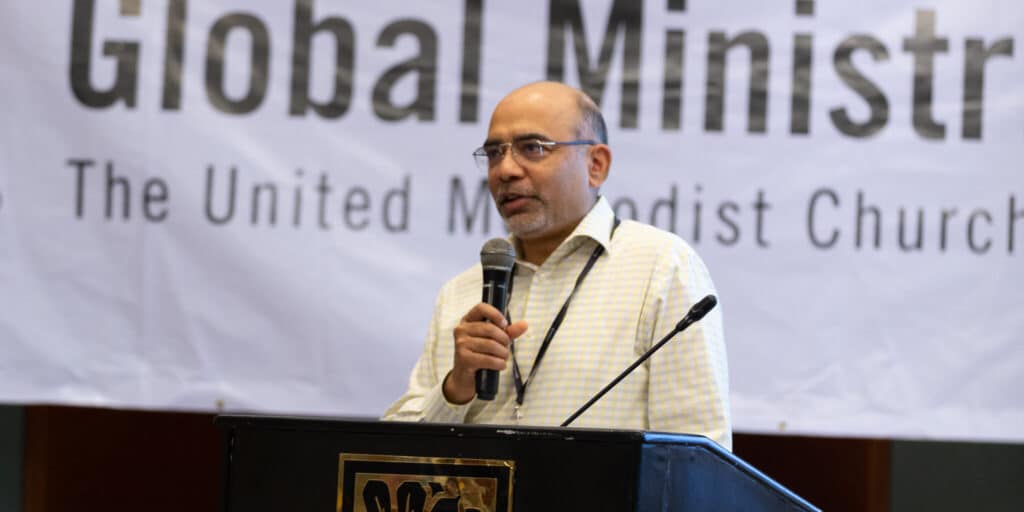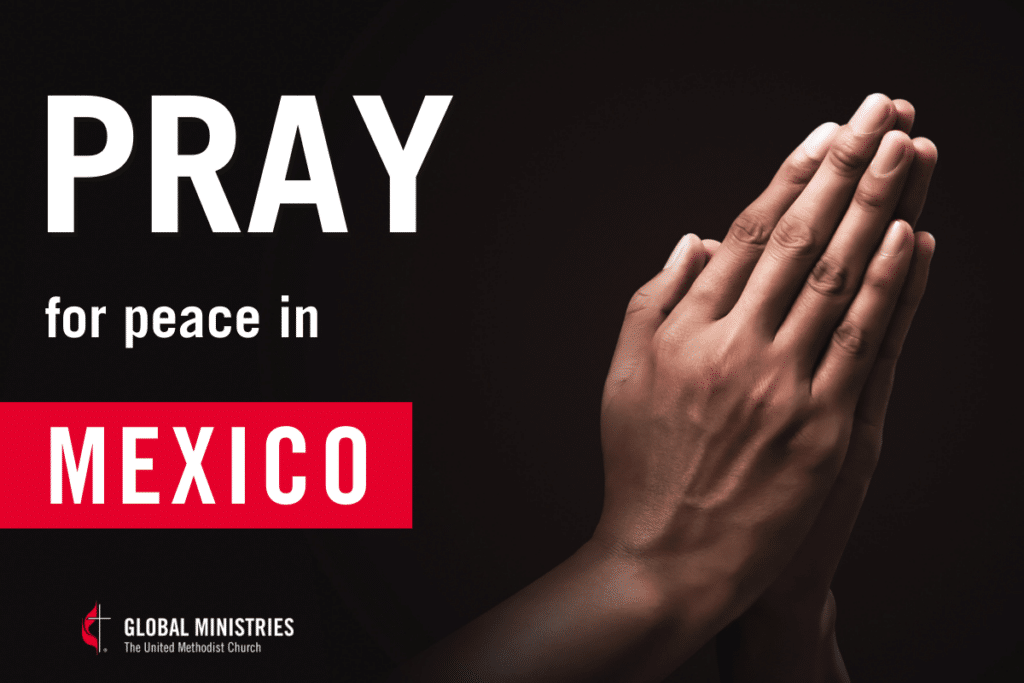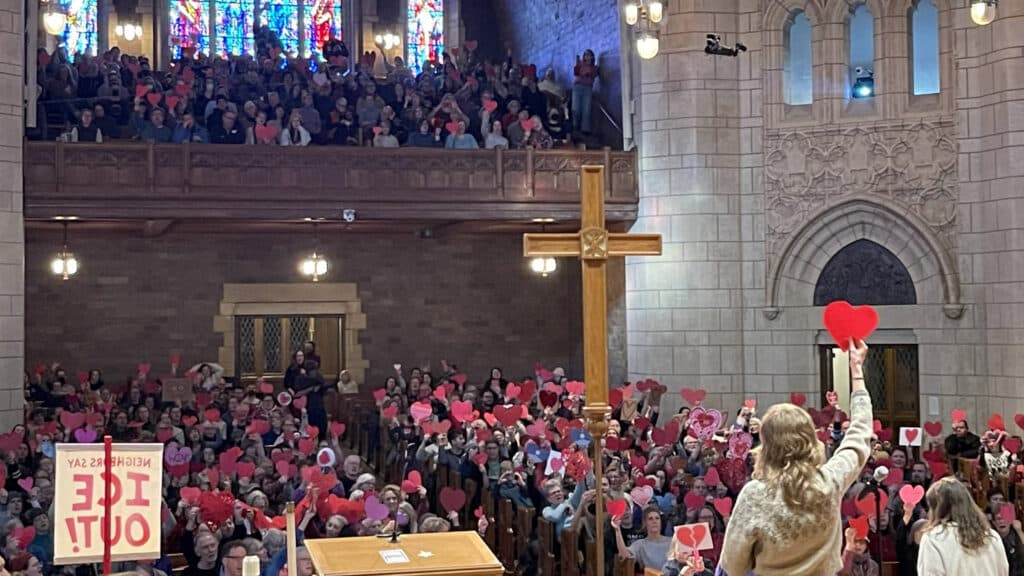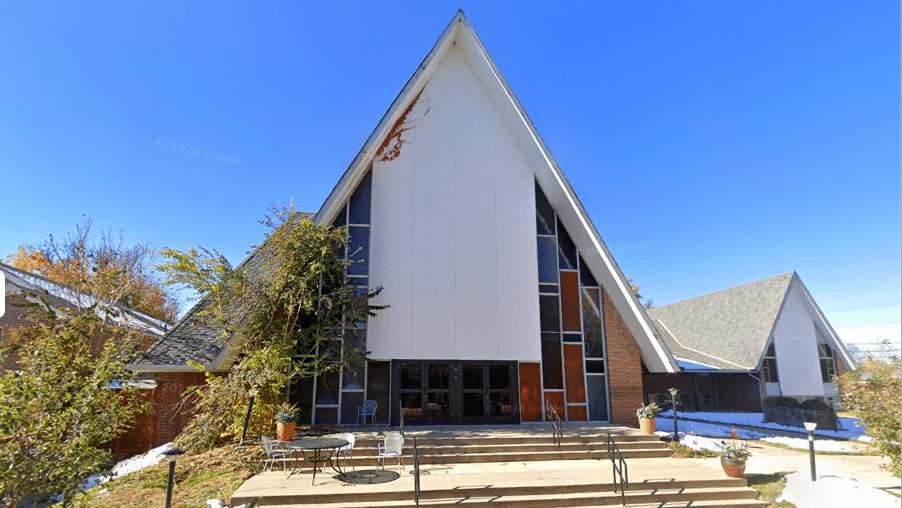PHNOM PENH, CAMBODIA — The Fall 2023 report of the chief mission officer of The United Methodist Church reviewed the work of the General Board of Global Ministries across the last four years of unprecedented challenges and anticipated new opportunities and unresolved issues on the pathway into mission tomorrow.
Roland Fernandes, general secretary of the organization that incorporates the United Methodist Committee on Relief (UMCOR), a major humanitarian service operation, addressed agency directors, meeting in Phnom Penh, Cambodia, on Oct. 19, its second such session outside the United States. Directors met last April in Maputo, Mozambique. The gatherings in Africa and Asia provided occasions for regional and global face-to-face mission consultation that were impossible since late 2020.
Fernandes continued in Cambodia a theme introduced in Mozambique, based in verses from the Letter to the Hebrews: “Let us hold unswervingly to the hope we profess, for he who promised is faithful. And let us consider how we may spur one another on toward love and good deeds, not giving up meeting together, as some are in the habit of doing, but encouraging one another….” (Hebrews 10:23-25, NIV)
He pointed to the faithfulness of God in making possible Christian capacity to spur one another to love and good deeds in mission in times of uncertainty – such as during the COVID-19 pandemic, which overlapped with ethical debates and operational/financial restructure within The United Methodist Church. He summarized the far-ranging and strategic conversations on mission priorities in which directors, staff, missionaries and mission partners continue to be engaged as the denomination approaches a long-postponed policy-making General Conference next spring.
Items on the immediate mission agenda Fernandes mentioned included:
- Alignment of regional (traditional mission work) and sectoral activities (humanitarian and health);
- With such alignment in mind, expansion of the concept of “regional missionaries”;
- Clarification of mission strategy pertaining to Latin America and the Caribbean;
- Renewed exploration of a regional office in Africa comparable to that operative in Asia;
- Combination of the administration of U.S. Disaster Response and International Disaster Response within UMCOR;
- Centralization of grant-making processes;
- Creation of a Peace and Justice program, incorporating concern for the Korean Peninsula and Israel/Palestine;
- Strengthening the Mission Engagement unit to enhance global connections; and
- Discovering ways to achieve greater interagency alignment in the work of the general church.
Read the full report here.
Elliott Wright is an information consultant for Global Ministries and UMCOR




